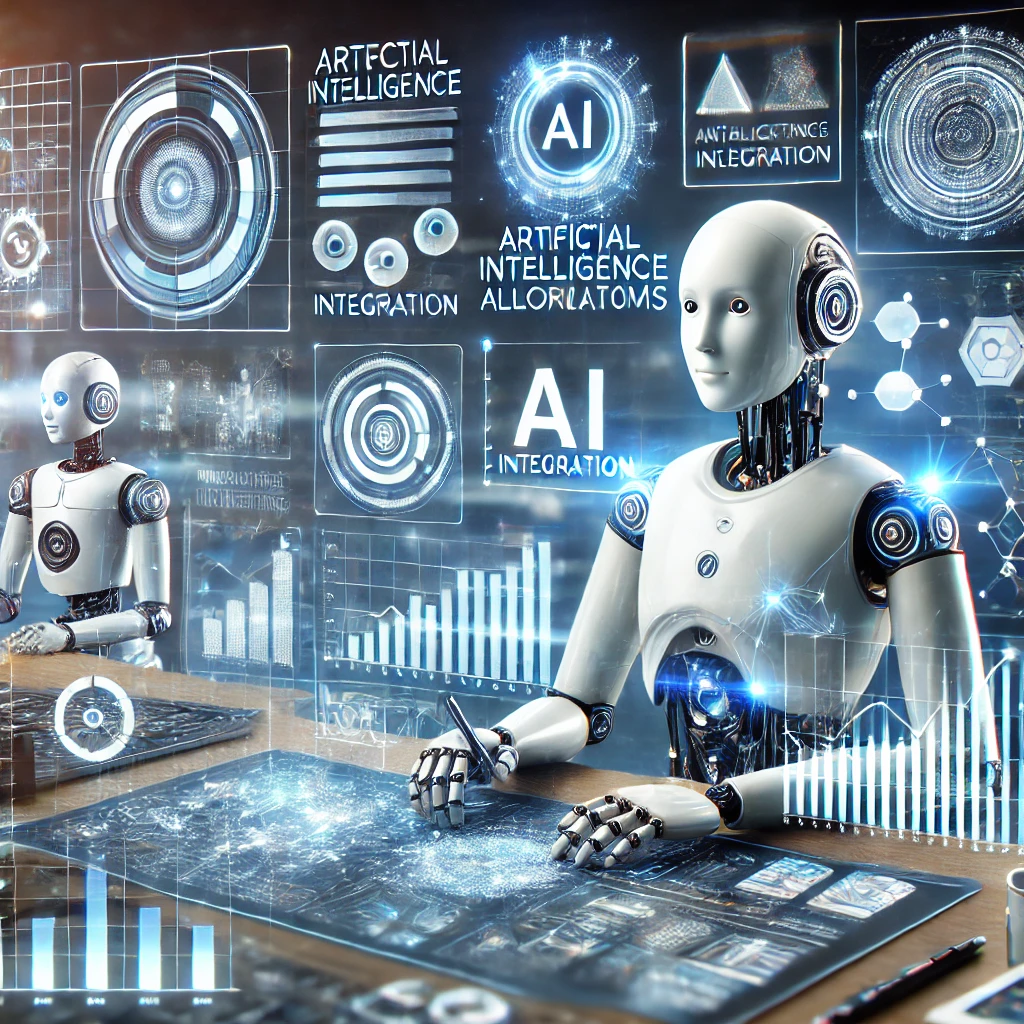Artificial Intelligence (AI) has become a cornerstone of digital marketing, revolutionizing how businesses engage with consumers and optimize their strategies. As we approach 2025, several key trends and predictions are set to shape the future of AI in this domain.
1. AI-Powered Personalization
By 2025, AI is expected to elevate personalization to unprecedented levels. Advanced algorithms will analyze consumer behavior and preferences, enabling businesses to deliver highly tailored experiences. This includes personalized product recommendations, targeted advertisements, and dynamic content adjustments, all aimed at enhancing customer engagement and satisfaction.
2. Integration of AI Agents
AI agents, functioning as virtual marketing assistants, are anticipated to become integral to marketing strategies. These agents will automate routine tasks such as content creation, social media management, and customer service interactions, allowing marketing teams to focus on strategic initiatives. The rise of AI agents will streamline operations and improve efficiency across various marketing channels.
3. Enhanced Predictive Analytics
Predictive analytics, powered by AI, will enable marketers to anticipate consumer behavior and market trends with greater accuracy. By analyzing historical data and identifying patterns, businesses can make informed decisions, optimize campaigns, and allocate resources more effectively. This data-driven approach will be crucial for staying competitive in the evolving digital landscape.
4. AI-Driven Content Creation
The demand for high-quality, engaging content will drive the adoption of AI-driven content creation tools. These tools will assist in generating articles, social media posts, and multimedia content, ensuring consistency and relevance across platforms. While AI will handle routine content tasks, human creativity will remain essential for strategic oversight and innovation.
5. Voice Search Optimization
With the proliferation of voice-activated devices, optimizing for voice search will become a priority. AI will play a pivotal role in understanding natural language queries, enabling businesses to tailor their content and SEO strategies to align with voice search patterns. This shift will require marketers to adapt their approaches to meet the evolving search behaviors of consumers.
6. Ethical AI Implementation
As AI becomes more integrated into marketing practices, ethical considerations will take center stage. Businesses will need to ensure transparency, data privacy, and fairness in their AI applications. Establishing ethical guidelines and adhering to regulations will be essential to maintain consumer trust and comply with legal standards.
7. AI in Customer Experience Enhancement
AI will be instrumental in enhancing customer experiences by providing real-time support, personalized interactions, and seamless service delivery. Chatbots and virtual assistants will handle customer inquiries promptly, while AI-driven analytics will offer insights into customer preferences, allowing businesses to tailor their offerings accordingly.
8. Integration with Emerging Technologies
AI will increasingly integrate with other emerging technologies such as augmented reality (AR), virtual reality (VR), and the Internet of Things (IoT). This convergence will create immersive and interactive marketing experiences, allowing consumers to engage with products and services in innovative ways. Marketers will need to explore these integrations to stay ahead of technological advancements.
9. AI-Driven Marketing Automation
Marketing automation powered by AI will streamline campaign management, from planning and execution to analysis and optimization. AI will enable dynamic adjustments to campaigns based on real-time data, ensuring optimal performance and resource utilization. This level of automation will be crucial for managing complex, multi-channel marketing strategies.
10. AI in Influencer Marketing
AI will enhance influencer marketing by identifying the most suitable influencers for brands, analyzing engagement metrics, and predicting campaign outcomes. This data-driven approach will improve the effectiveness of influencer partnerships and ensure alignment with brand objectives. Marketers will leverage AI to optimize their influencer strategies and maximize ROI.
Conclusion
The integration of AI into digital marketing is set to transform the industry by 2025. From personalized customer experiences and predictive analytics to ethical considerations and technological integrations, AI will drive innovation and efficiency in marketing practices. Businesses that embrace these trends and adapt to the evolving landscape will be well-positioned to succeed in the future of digital marketing.
